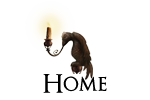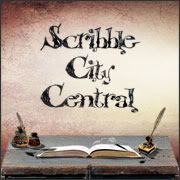
Helena Bonham-Carter is to play Enid Blyton in a new BBC4 series this autumn. I'm sure it will be fascinating (for some) to find out what a bad mother she was to her two girls, and other salacious details about her life, and to relate those things to the literary merit or otherwise of her books.
I don't like this trend. Increasingly, it seems to me, in the light of recent revelations, that there have to be more and clearer distinctions between the writer judged as person/character in their own life drama (and it seems often not a very nice person/character if you have been reading lately about William Golding et al), and the writer judged as/by their work. It is easy for latter day critics and biographers to ferret about in the recent past, through letters and newspaper clippings and other media and make a retrospective moral judgement along the lines of 's/he was immoral/cruel/alcoholic/druggy/an abusive parent (take your pick and add more), so therefore the work that is left behind is somehow compromised, because it is now seen through that particularly harsh lens of hindsight.'
In general, books which carry on being printed and read through many generations stand or fall on whether they are good and readable, and whether they have something durable to say, some perpetual and long-lasting universal insight to give into the human condition--not on whether their author was or was not a monster in their personal life--though scandal, of course, always has and always will sell copies in the short term. On its publication, sales of Byron's Don Juan, forinstance, were helped immeasurably by the whispers about the poet's unconventional love life as well as by the fact that it contained insults about the Foreign Secretary of the day and mocked the revered Lake poets. It lasted for a good long while on the reputation of its raffish author (of course, it helped that he died youngish and far from home), but is now probably studied only in 19th century English literature courses. Jane Austen, on the other hand, writing Pride and Prejudice at roughly the same period, and not a bit scandalous in her habits, has lasted, giving pleasure to each generation which recognises in her stories something true and enduring which sets off chimes and echoes within their own lives and experiences, ( including my own daughter (15) in the current one).
But back to Enid Blyton, where I started. No one could call her books great literature. She never pretended they were. As a child I read her avidly--liking The Secret Seven least and Malory Towers best, with The Magic Faraway Tree, The Wishing Chair and The Famous Five et al. following close behind. My parents, to give them credit, didn't care what I read, as long as I read. But many of my friends were forbidden to read Blyton, on the grounds that it was somehow unsuitable pap which would rot their brains. And this was long before any of the 'truth' about her as a person was known. I remember, very clearly, feeling slightly ashamed of longing to get my hands on the next adventure from the library. In restrospect I had been subtly and unwittingly tarred by a sort of middle-class all pervasive literary judgementalism which even now I still hate for its snobbery and disapproving pretentiousness. Something of the same judgmentalism has grown up around JK Rowling and Harry Potter too--fuelled by the rather dog-in-the-manger view that something so popular with children should have more literary merit, perhaps?
The fact is that both Rowling and Blyton write a good story, a riproaring yarn, a page turner, and millions of children recognise that and care not a bit for their carping elders and betters. Again, both Rowling and Blyton turn children into readers, and for that they should be forgiven much (in a literary way--as I said above, the personal shouldn't come into it at all).
It was therefore good to see Melanie McDonagh in the Daily Telegraph coming out and recognising Blyton's part in getting children to read, calling her 'a genius among children's writers'. Melanie was, however, very careful to make the distinction that she was not 'a writer of genius: you don't mention her in the same breath as Tolkien or Kenneth Grahame.' I think that's a fair assessment. Tolkien and Grahame will probably still be around in a hundred years. Will Blyton? I don't know. But taking a small straw poll of friends with children of the right age this weekend, I think she will be around for a while whether her reputation is irreparably tarnished by the BBC documentary or not. The children round here are still as happy to escape into the tattered pages of their parents' illicit copies as mine were when I handed them over 10 years ago. And it doesn't seem to matter a bit that the world of George, Anne, Dick, Julian and Timmy the dog has long disappeared into some rosy '50's hinterland of history. Perhaps that's the attraction. No latter day pervs and stalkers to worry about, like there are in the papers and on TV. And it's certainly better and healthier comfort food for the 10 year-old brain than a quick and violent game of Auto Theft IV.
















6 comments:
Blyton's behaviour as a parent may not affect her standing as a writer for children or as a reading recruiter but it is interesting nonetheless, especially in the light of the fact that her books regularly feature children who run away from unhappy homes where they are mistreated, children who adopt snobbish habits because they have learned them from snobbish parents, children who engage in criminality because they have criminal parents and, above all, children whose parents are absent because they are preoccupied with their own concerns. So her own success, or lack of it, in the role of parent provides a context for viewing her work. Obviously, you're not interested in that as a child reader but if you're a children's writer who also happens to be a parent, surely it's fascinating?
The thing is, Brian, I don't necessarily WANT to view her work in the context of her lack of success as a parent or any of those other things. Nor anyone's. Don't get me wrong here, I am the nosiest of people when it comes to reading letters and lives of other writers, politicians, or indeed almost anyone who has had interesting, sad or extraordinary things happen to them. I find other people's lives endlessly fascinating and a source of knowledge on the morals and mores of both our own and other times.
But when I read a children's book, it is first and foremost the merits of the story I am interested in, and whether that stands up, regardless of what sort of person the author is and what sort of life they have experienced. I'd rather read with an 'innocent eye'in the first instance, so if I do know about the person whose work I am reading, I try to compartmentalise the knowledge so as not to be endlessly interrupted by thinking 'Oh, so that's the reason for the approach to so-and-so.' I realise that many may disagree with this approach--but I was always a rebel about things like deconstructing Shakespeare and Donne too. As a reader I'd rather engage with the work directly, with no unneccesary barriers.
By reason of my own insecurities I'm fascinated by the contradictions (trying to think of a better word) of being a parent and being a children's writer. But I agree with you, Lucy, that we shouldn't withhold Enid Blyton because of anachronistic values or disapproval of her home life. I loved Enid Blyton as a child, and now my children love her too. As an adult I can see what's wrong with the books and the characters and the attitudes, and so will my kids, eventually. Till then I'm not going to spoil it for them: they simply love getting lost in the adventure. It's like their adoration of Michael Jackson. I'm not going to complicate matters right now by discussing the man's troubled nature; let them discover that and think it over as they grow up. Meanwhile enjoy the music. The same applies to Blyton.
One of the windows in my sitting room has three panes of modern glass and one of Victorian glass. Victorian glass does not provide the same level of transparency. So you see a slightly different world, depending on which pane you look through. Through Victorian glass the world is mistier round the edges; through modern glass it's altogether sharper. I like to have the choice.
As a child, I Sellotaped a picture of Enid Blyton to my bedroom door; underneath I put 'my favourite author'. Somehow, though, I never bought her books for my own daughter (my mother was a vigorous thrower-out, so I don't have any of mine any more). I suppose this was more out of a sense of their datedness than anything else; they were old-fashioned even in my day! She had access to them at school, though, and like you I deplore the snobbery about her work.
But as far as I'm concerned, she is fair game for examination, and while it's of interest, it has no impact whatsoever on my feelings about her work, any more than suggestions of Lewis Carroll's unhealthy interest in Alice Liddell would have any influence over my feelings about his books. For me, the two things are completely separate.
Gillian--yes. Enjoy the music.
Choice is always good, Brian, and I take your point about the Victorian glass (nice!).
Fiona--I agree that EB is fair game for examination. As I said, I find other people's lives endlessly fascinating when approached in a scholarly and non-prurient way. It's great that your feelings about EB and also Carroll are unaffected by what you know about them. But many adult readers, as far as I can tell, do not have such a balanced approach as you. And because we live in such a scandal-ridden, celebrity-obsessed society, any juicy mud which appears in a biography or biopic tends to be the first thing mentioned about an author, rather than the merit of their work. Now perhaps that's a good thing in a way as it may bring in more readers. But I can't help being sad about it and wishing for a more innocent time. Personally, I cannot now read the Narnia books with the same degree of pleasure they used to give me, because I can now only see them through the lens of Lewis's underlying Christian proselytising, and it gets in my way. In that particular instance, knowledge (even if it's not scandalous) has made a difference to my adult viewpoint. All part of growing up! But I still wish I had my 'innocent eye' back as far as those particular books are concerned.
Post a Comment